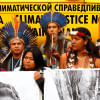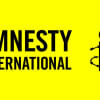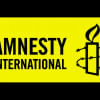Amnesty’s musical appeal for education of Rohingya and host community children
Amnesty International released a music video today on the occasion of the International Day of Education to encourage people of Bangladesh and around the world to support education for Rohingya children and those of host communities in Bangladesh.
Bangladeshi hip-hop lyricist and musician Mahmud Hasan Tabib and child artist Rana Mridha, who became popular on YouTube for their songs promoting education of underprivileged children in the country, lent their voices to the track, according to an Amnesty International media release.
"As humanity is not limited to the confines of any one race or border, supporting education of the oppressed Rohingya children is all of our responsibility. This song for Rohingya children's education is driven by that belief. I felt inspired to work with Amnesty International after learning about their work to promote education of the oppressed Rohingya children," said Tabib.
The Bangla song, with English subtitles, contains the lyrics: "If all children today are enlightened with education, the future of the world will be bright. Otherwise, it will be a mistake, injustice will increase. They will be silenced by the rage of the sinners."
Thousands of Rohingya children and youth are denied access to education in villages and towns in Myanmar as well as in places where they have sought refuge. Raising these children without access to education exposes them to poverty and exploitation, which in some cases include serious criminal activity such as drug smuggling, child trafficking or recruitment into violent armed groups.
"Education is not at odds with repatriation. Instead, a quality education in appropriate language and accredited curriculum can empower the Rohingya children to claim their rights, contribute to the society and economy they live in," said Saad Hammadi, South Asia campaigner at Amnesty International.
Nearly a million Rohingya refugees have fled to Bangladesh from their homes in Myanmar because of action by the military in the country, many of which amount to crimes against humanity. Almost half a million are children below 18 years living in threadbare camps in Cox's Bazar, which has the lowest primary school enrolment rate in the country at 71 percent and the second highest drop-out rate at 31 percent.
Amnesty International launched a petition in major countries calling on governments to support Bangladesh in educating the children of Rohingya refugees and those of the host community.
A global petition also calls on Bangladesh Prime Minister Sheikh Hasina to ensure quality education in appropriate language and accredited curriculum to protect the social, cultural and linguistic identities of both communities.
"As we encourage the international community to share responsibility for the crisis that has hit Bangladesh as a result of the refugee influx, using this moment to improve access to education for all children in Cox's Bazar will be a step in a positive direction for the government of Bangladesh," said Saad Hammadi.

 For all latest news, follow The Daily Star's Google News channel.
For all latest news, follow The Daily Star's Google News channel. 






Comments